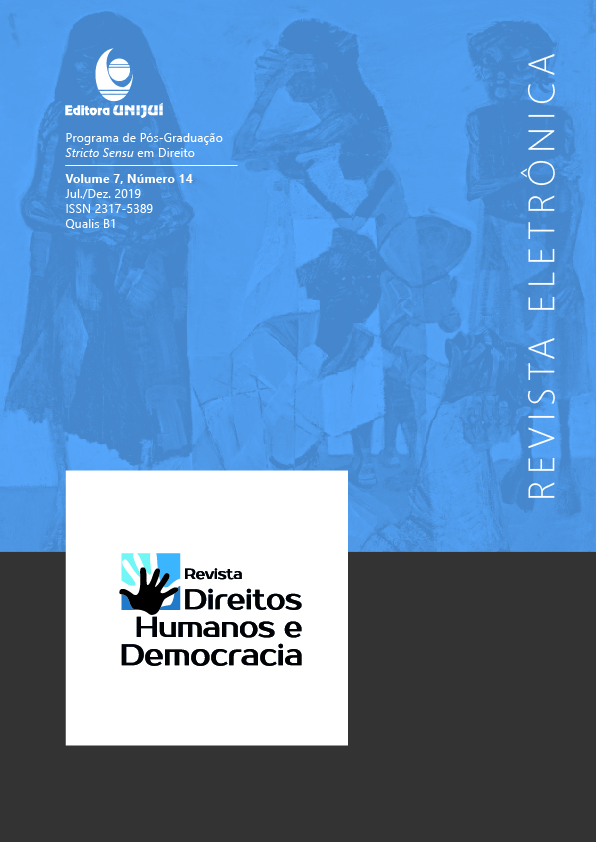PRINCÍPIO DEMOCRÁTICO E ADMINISTRAÇÃO PÚBLICA DEMOCRÁTICA EM TEMPOS DE CIBERCIDADANIA
DOI:
https://doi.org/10.21527/2317-5389.2019.14.85-97Palavras-chave:
Princípio democrático. administração pública democrática. sociedade da informação. cibercidadaniaResumo
: O conceito dinâmico do princípio democrático na Constituição da República Federativa do Brasil de 1988 espraia seus efeitos axiológicos para outras prescrições normativas que enaltecem a participação do cidadão na administração pública para exigir dos órgãos oficiais que a veiculação de informações e dados de interesse particular, de interesse coletivo ou de interesse público em geral sejam disponibilizados pela Internet a fim de permitir não somente acessibilidade à informação, mas, também, conhecimento funcional e controle dos atos praticados por quem exerce poderes em nome do Estado. Alertar que embora a incorporação das novas tecnologias da informação e da comunicação à infraestrutura seja indispensável à modernização do Estado contemporâneo, revela-se fundamental no caso brasileiro fomentar os mecanismos de participação democrática através do sistema educacional a fim de superar a falta de confiança da sociedade na administração pública.
Downloads
Publicado
Como Citar
Edição
Seção
Licença
Ao publicar na Revista Direitos Humanos e Democracia, os autores concordam com os seguintes termos:
Os trabalhos seguem a licença Creative Commons Atribuição 4.0 Internacional (CC BY 4.0), que permite:
Compartilhar — copiar e redistribuir o material em qualquer meio ou formato;
Adaptar — remixar, transformar e criar a partir do material para qualquer fim, inclusive comercial.
Essas permissões são irrevogáveis, desde que respeitados os seguintes termos:
Atribuição — os autores devem ser devidamente creditados, com link para a licença e indicação de eventuais alterações realizadas.
Sem restrições adicionais — não podem ser aplicadas condições legais ou tecnológicas que restrinjam o uso permitido pela licença.
Avisos:
A licença não se aplica a elementos em domínio público ou cobertos por exceções legais.
A licença não garante todos os direitos necessários para usos específicos (ex.: direitos de imagem, privacidade ou morais).
A revista não se responsabiliza pelas opiniões expressas nos artigos, que são de exclusiva responsabilidade dos autores. O Editor, com o apoio do Comitê Editorial, reserva-se o direito de sugerir ou solicitar modificações quando necessário.
Somente serão aceitos artigos científicos originais, com resultados de pesquisas de interesse que não tenham sido publicados nem submetidos simultaneamente a outro periódico com o mesmo objetivo.
A menção a marcas comerciais ou produtos específicos destina-se apenas à identificação, sem qualquer vínculo promocional por parte dos autores ou da revista.
Contrato de Licença: Os autores mantém os direitos autorais sobre seu artigo, e concedem a Revista Direitos Humanos e Democracia o direito de primeira publicação.













